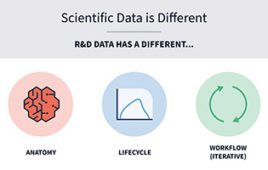 Scientists have identified a biological clock that provides vital clues about how long a person is likely to live. Researchers studied chemical changes to DNA that take place over a lifetime, and can help them predict an individual’s age. By comparing individuals’ actual ages with their predicted biological clock age, scientists saw a pattern emerging.
Scientists have identified a biological clock that provides vital clues about how long a person is likely to live. Researchers studied chemical changes to DNA that take place over a lifetime, and can help them predict an individual’s age. By comparing individuals’ actual ages with their predicted biological clock age, scientists saw a pattern emerging.
Biological age
People whose biological age was greater than their true age were more likely to die sooner than those whose biological and actual ages were the same.
Four independent studies tracked the lives of almost 5,000 older people for up to 14 years. Each person’s biological age was measured from a blood sample at the outset, and participants were followed up throughout the study.
Researchers found that the link between having a faster-running biological clock and early death held true even after accounting for other factors such as smoking, diabetes and cardiovascular disease.
“The same results in four studies indicated a link between the biological clock and deaths from all causes. At present, it is not clear what lifestyle or genetic factors influence a person’s biological age. We have several follow-up projects planned to investigate this in detail,” said Dr. Riccardo Marioni, of the Centre for Cognitive Ageing and Cognitive Epidemiology, University of Edinburgh.
DNA modification
Scientists from the University of Edinburgh, in collaboration with researchers in Australia and the US, measured each person’s biological age by studying a chemical modification to DNA, known as methylation.
The modification does not alter the DNA sequence, but plays an important role in biological processes and can influence how genes are turned off and on. Methylation changes can affect many genes and occur throughout a person’s life.
“This new research increases our understanding of longevity and healthy ageing. It is exciting, as it has identified a novel indicator of aging, which improves the prediction of lifespan over and above the contribution of factors such as smoking, diabetes, and cardiovascular disease,” said Professor Ian Deary, also of the Centre for Cognitive Ageing and Cognitive Epidemiology, University of Edinburgh.
International collaboration
The study is published in the journal Genome Biology and was conducted by researchers from the University of Edinburgh, University of Queensland, Harvard University, University of California, Los Angeles (UCLA), Boston University, the Johns Hopkins University Lieber Institute for Brain Development and the U.S. National Heart, Lung and Blood Institute.
This study was carried out at the University of Edinburgh’s Centre for Cognitive Ageing and Epidemiology (CCACE), which is supported by the Medical Research Council (MRC) and the Biotechnology and Biological Sciences Research Council (BBSRC) as part of the Lifelong Health and Wellbeing programme, a collaboration between the UK’s Research Councils and Health Departments which is led by the MRC.
Related links




